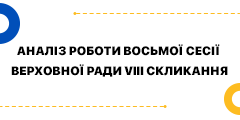You can download research at the link
International experience
- The spread of the COVID-19 coronavirus pandemic has significantly affected the organization and conduct of elections worldwide. More than 50 countries have postponed election until later. In particular, parliamentary elections in Serbia, Ethiopia, Sri Lanka, presidential elections in Poland and Bolivia were postponed. Local elections were postponed in the United Kingdom and Romania. A number of referendums were postponed in the Russian Federation, Italy, and Chile. Presidential primaries were postponed in the United States.
- Postponed for an indefinite period of time elections in some countries have become a serious challenge in terms of international election standards. In the United Kingdom, the election of the mayor of London was postponed for a year, in Romania the powers of local authorities were extended until the end of the year, in Sri Lanka the parliamentary elections have been postponed for two months. In a number of countries, discussions of a possible election delay were accompanied with significant scandals. In Bolivia, for example, the opposition has accused the temporary president in attempt to retain power, while in Poland the president has been accused in attempt to conduct elections on time at any cost, ignoring the COVID-19 situation.
- Postponed elections call into question the implementation of the international principle of periodicity of elections, as this is a question of extended term of office of previously elected persons. At the same time, when conducting elections, not only the principle of periodicity should be observed, but also the implementation of other basic election standards should be promoted, namely: the principles of free, fair elections, which take place on the basis of common, equal, and secret electoral right. Periodic elections, which are conducted without observance of other basic standards, cannot be considered a full-fledged vote of citizens and are not a real expression of the people's will. In view of this, elections should be held not only at reasonable periods, but also in conditions that provide opportunities for free voting of citizens, and the election process should be as safe as possible for all subjects of the election process and should not pose a threat to their health.
- Despite the risks, some countries did not postpone elections and conducted voting during the pandemic. At the same time, some countries still had to admit their inability to organize the election process, so the elections were conducted partly. For example, in France the first round of local elections took place in mid-March, in Iran the first round of parliamentary elections was conducted at the end of February, but the election process could not be completed, the second round of voting in both countries was postponed. On the other hand, the Republic of Korea, Germany, Australia and Israel have conducted elections in a situation of pandemic. However, voting in these countries took place at different times and with different complexity of the epidemiological situation. In Israel at the time of voting there were almost no confirmed patients with COVID-19 (a special voting procedure was provided only for citizens who were in quarantine), and in the Republic of Korea there were thousands of patients.
- Countries had to take special security measures for the voting in the situation of pandemic to prevent the spread of COVID-19 among the population. In the Republic of Korea has implemented additional measures for individual protection of voters: citizens had to observe social distance, use masks and gloves, polling stations were regularly disinfected, and special voting algorithms were developed for voters with COVID-19 and quarantined citizens. As a result, turnout reached a record - 66% of citizens participated in the election. In Israel, special polling stations with a higher protection level have been set up for voting of quarantined persons. In Germany, in the second round of local elections citizens voted by mail.
- The situation with COVID-19 has caused discussions on the introduction of new forms of voting, in particular through the Internet. Such discussions has erupted with the growing role of digital technology and telecommunications during a pandemic in the background. However, despite the idea of online voting seems very attractive, such a decision requires a detailed considering of the pros and cons as the introduction of online voting entails a number of serious risks. In particular, it is a matter of cybersecurity and data protection, preventing vote buying and the use of other unfair technologies to influence the election results, building public confidence in the new mechanisms and results of the election in general. Considering the above factors, a number of countries (including Lithuania, Finland, Norway, France) in recent years have abandoned the idea of introducing online voting.
- An alternative to traditional voting at polling station and controversial online voting is voting via mail. Due to the COVID-19 pandemic, a number of countries have publicly discussed the option to introduce voting via mail. In the Russian Federation and Poland, the relevant innovations have got the status of legislative changes and have become a part of the election legislation. Voting via mail, as well as online voting, can help people to avoid the traditional risks associated with the spread of COVID-19, but it must be properly organized and meet international election standards. Both online voting and voting via mail are vulnerable to various manipulations and to pressure on voters; the ability to organize the process properly depends directly on the quality of the national postal services.
Recommendations
- Ukraine is one of the countries where the spread of COVID-19 may affect the electoral process. Regular local elections in Ukraine are planned for October 2020. More than 13 million citizens participated in the last local elections in 2015, election was conducted in almost 30,000 polling stations. As a large number of people (voters, candidates, their representatives, commission members, observers) are involved in the organization and conduct of election, and the epidemiological situation is unpredictable, the state should develop basic recommendations and options for action in case the situation with spread of COVID-19 becomes worse. Specific protocols for protection during the election process should be developed based on the results of consultations of the Verkhovna Rada, the Cabinet of Ministers, the Central Election Commission and the Ministry of Health. The introduction of new security measures will require additional budget funding, and this issue is particularly urgent considering that the parliament has previously reduced overall funding for local elections.
- Ukraine is among those countries that have some experience of holding elections in a pandemic. So, on March 15 in Kharkiv oblast in DEC №179 by-elections of MP took place. The quarantine has been introduced not long ago, and the situation with COVID-19 has affected the election process only indirectly. However, the election was accompanied by manipulation of some candidates, who demanded to stop preparations for election, and the election results showed an extremely low turnout: only 27% of citizens voted (in 2014 this indicator was 44%, in 2012 — 55%).
- Some particularly important aspects of the electoral process should be considered very carefully during preparation for the local elections in Ukraine in the context of a possible escalation of the COVID-19 pandemic. It is not only about the day of voting, but it is also about the peculiarities of the election commissions work, the procedure for nominating and registering candidates, campaigning, working conditions at polling stations and preparation for election day. The CEC should develop a code of conduct for voters, which would include information on the specifics of voting in the context of the COVID-19 epidemic. It is important to make this document clear and get citizens acquainted with it in advance.
- During the election process in a situation of pandemic, mass gatherings of citizens and their direct contact with each other should be avoided. Such forms of agitation as election concerts, sports competitions, children's fests, film screenings, rallies, marches, demonstrations are potentially dangerous in terms of the spread of COVID-19. Therefore, such activities can be limited taking into account the epidemiological situation in the country. Meetings with voters should be conducted with the use of personal protective equipment (masks, disinfectants) and with respect to social distance between participants. Candidates' public activities must comply with the Ministry of Health's recommendations for protection against viral infections.
- Provision of certain types of goods or services to voters by candidates may foster the spread of COVID-19: in particular, large queues and crowds often accompany the mass distribution of food kits. In addition, handshakes for show between candidates and voters, as well as joint photo shoots, are common practices in local elections; these actions also entail significant risks of the spread of COVID-19.
- Requirements to prevent the spread of COVID-19 should also be taken into account in the activities of election commissions. Thus, in case meetings of commissions cannot be held at their location, it is necessary to provide a legal basis for remote meetings of commissions (for example, video conferences). Due to the pandemic, similar mechanisms have previously been applied to parliamentary committee meetings.
- Political parties should develop such algorithms for nominating candidates, which do not require mass congresses of parties and which are submitted for implementation remotely in compliance with election legislation.
- Approaches to the exchange of documents between election commissions and subjects of the election process should be modernized, and alternative (online) form of documents submission should be provided. This applies to the registration of candidates, their authorized representatives, official observers. Relevant procedures can also be used in preparing complaints and submitting financial statements of candidates.
- Special attention should be paid to the issue that persons particularly those who are vulnerable to COVID-19 (senior citizens, persons suffering from cardiovascular diseases, diabetes, chronic respiratory diseases) are involved in the election process. If those people participate in work of election commissions, work as observers or participate in agitation activities (for example, distribute campaign materials), the risk of being infected by COVID-19 increases. The situation is difficult because a significant number of commission members in Ukraine are senior citizens (especially in PECs in rural areas and small towns). In addition, medical workers who have been in direct contact with patients with COVID-19 are not recommended to work as commission members.
- When organizing the voting process on Election Day, the following rules should be followed: maintaining social distance, disinfection and available personal protective equipment. The distance between voters should be at least 1 m. The voting process should be organized in such a way as to avoid queues and crowds of voters. Senior citizens should vote in different time than when the majority of voters usually vote (for example, in the morning). The requirements of social distance must be observed in the placement of election equipment — the distance between election booths should be increased. A barrier can be set between commission members and voters.
- Premises of polling stations must be provided with personal protective equipment and antiseptics. The premises must be ventilated. Election equipment should be regularly cleaned and disinfected during the day. Traditional voting booths should not be used for voting as they foster the spread of COVID-19.
- If the epidemiological situation worsens, it is necessary to have persons at the entrance to the premises of polling stations, who will carry out the thermometry of voters. Election commission members and observers should have their temperature measured periodically throughout the day. Voters and persons present at the polling station must use personal protective equipment (protective masks, gloves). Voters should use their own pens to fill out ballots.
- Special voting mechanisms should be provided for voters who have been diagnosed with COVID-19. Possible options include voting at their place of residence and voting at special polling stations with increased security measures. Special voting procedures should also be applied to voters who are in quarantine at the time of the election. Such citizens can vote at regular polling stations, but after the time for voting for other citizens is expired.

